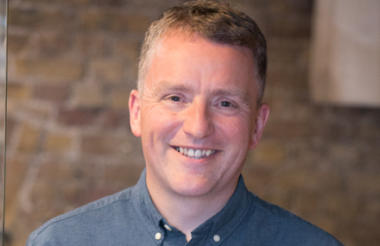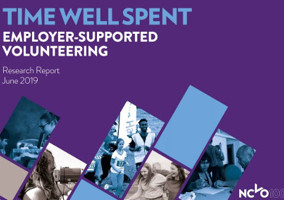Volunteering in green spaces should be encouraged to prevent people from feeling left behind, but parks should not be “dumped” on communities, NCVO’s chief executive told the Conservative Party conference yesterday.
Karl Wilding was speaking at a fringe event about green spaces organised by the National Trust and Policy Exchange. He said people should be encouraged to get involved with their communities because it is good for individuals and good for the communities, and that access to green spaces is a way to encourage this.
But he also warned that volunteers and community groups should not be expected to take on the responsibilities of running parks.
“The link between green spaces and getting involved is something we should celebrate,” he said. He highlighted the ParkRun movement as “one of the biggest growing organisations not just in this country but worldwide”.
He added that it is an “exemplar not just of green spaces but of the modern way in which people choose to participate and get involved”.
But said it was frustrating that a couple of years’ ago one council banned ParkRun from operating.
‘People will fall behind if there aren’t places to get involved’
Wilding highlighted the findings about the health and wellbeing benefits of volunteering from NCVO’s research, Time Well Spent.
He said: “Participation needs spaces and places. It’s not just green spaces - it’s youth clubs, village halls and so on.”
And he added: “If I’m right that volunteering changes your life, I think we need to recognise that whilst seven out of 10 people volunteer at some point in their life, three out of 10 people have never volunteered, ever.”
He described volunteering as a “leg up”: “If people aren’t volunteering they’re going to fall further behind, and we have got to make sure those people have access to volunteering opportunities. I think many of those volunteering opportunities take place in those green spaces that we’re talking about.”
‘Don’t just dump assets on communities’
Wilding acknowledged that the UK has experienced difficult times over the last decade in terms of the public finances, saying: “Philanthropy and volunteering have a role to play in this agenda but they are not the solution to everything.
“You can’t just dump these assets onto communities and expect them to be self sustaining, just as we cant put libraries into the hands of volunteers and expect those volunteers to not only run the library but to pay for the heating and the lighting and the purchase of the books.”
He said there should be a partnership model that involves the public sector, communities and local businesses.
Community involvement reduces anti-social behaviour
David Greenhalgh, leader of the Conservative council in Bolton, said that by involving the local community in the regeneration of parks, it had reduced anti-social behaviour in the area.
He said the council and members of the local community had worked together to transform a derelict park into an area with a theatre, gym equipment and more, so that it was “as much a wellbeing area as a play area”.
By involving young people things like planting bulbs and litter picks, he said they had gained a sense of ownership of the area.
“Anti-social behaviour in that area has diminished incredibly,” he said. “I’m not saying they’re not getting up to nonsense in other places, but they certainly have ownership of that park. There’s not any bother we get from teenagers in that park whatsoever because they feel ownership of that park and it is something that is very special to them.”
National Trust parks project oversubscribed
HIlary McGrady, director general of the National Trust, revealed that a project the charity was running to pilot new ideas for urban parks was vastly oversubscribed, with nearly 100 applications for eight spaces.
The Future Parks project has £5m in funding from the National Lottery Heritage Fund, and the Trust will provide support in kind by advising on fundraising, volunteering and conservation issues.
“We want to find new models to care for our parks,” McGrady said. “We had 92 responses from local authorities who said ‘we need help’.”
|
Related articles











